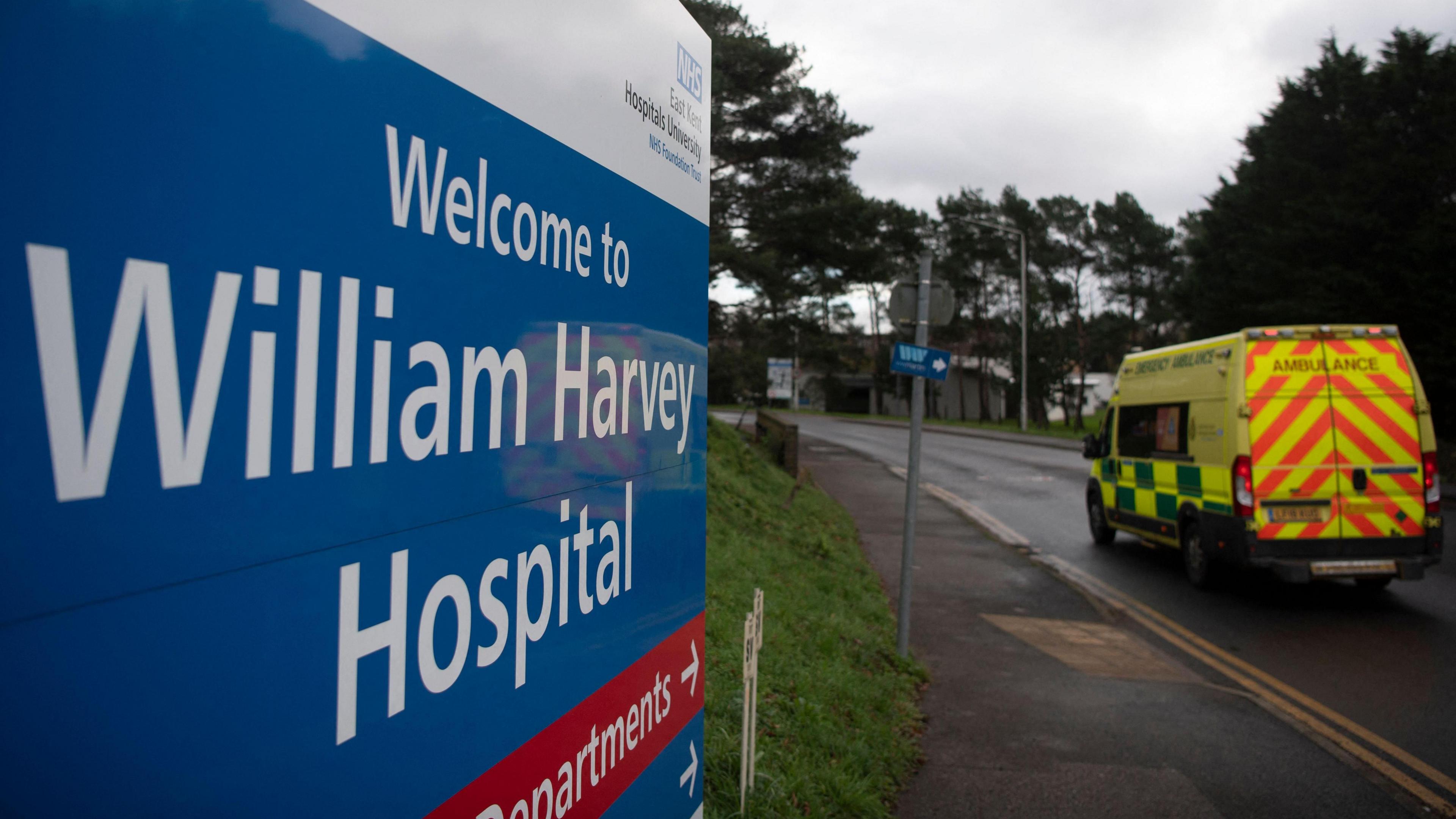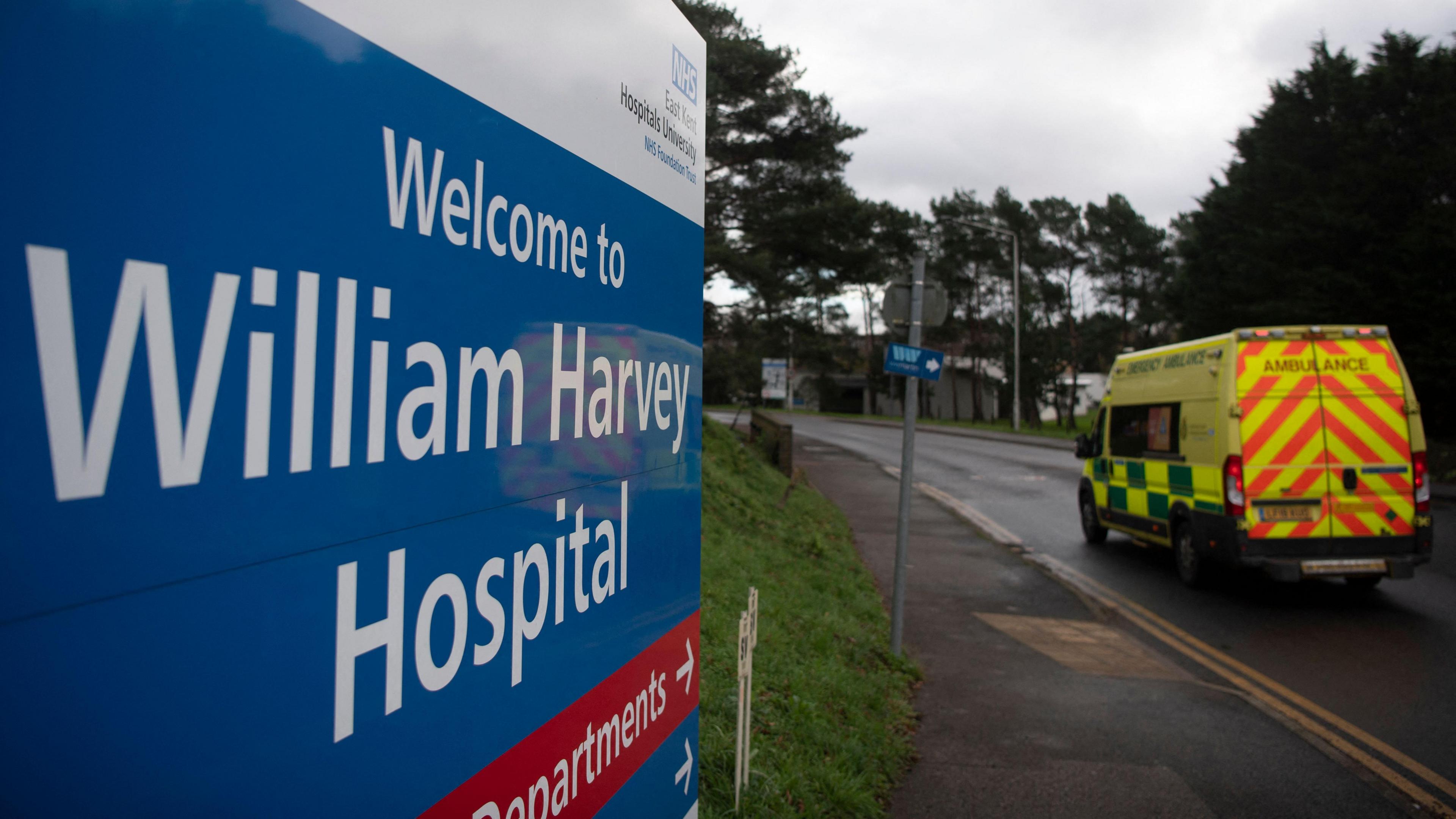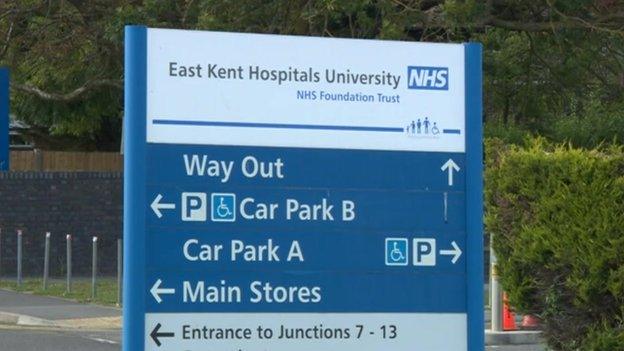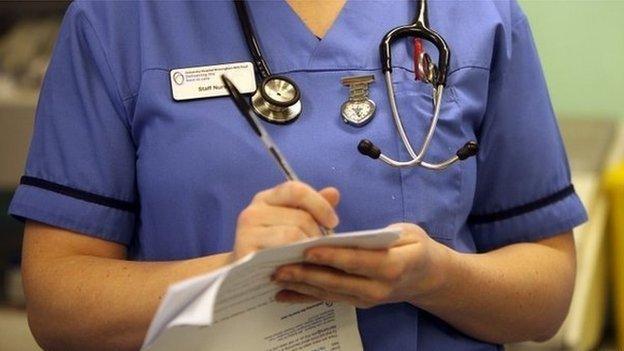Hospital trust could 'run out of cash by November'

The trust has run up a deficit of nearly £40m in this financial year so far
At a glance
East Kent Hospitals Foundation Trust ran up a deficit of £39m in the first four months of this financial year
That figure is £8.4m more than planned
Plans are being made to cut back on agency staff and other economies to reduce the deficit
- Published
East Kent Hospitals Foundation Trust could run out of cash by November, board members have been told.
The trust, which serves 700,000 people and runs five hospitals, ran up a deficit of £39m in the first four months of the financial year, £8.4m more than planned.
A report shown to the board on 7 September said the trust lost money due to strikes, agency staff costs and failure to deliver planned savings.
The trust said it was working to make savings, including cutting back on using agency staff and stricter non-clinical recruitment.
Richard Oirschot, a non-executive, told board members: “The trust’s deficit of £39m in the first four months is some £8.4m worse than the planned deficit of £30.6m.
“As a result of the current adverse performance and lack of progress on the trust improvement programme delivery for 2023 – 2024, the financial plan for a deficit of £72m this year looks extremely challenging.
“The trust is likely to run out of cash by the end of November, unless revised forecasts are agreed with NHS England or performance changes dramatically.”
The trust had previously been placed in special measures from 2014 to 2017.
At its last overall inspection by the Care Quality Commission in 2021, the trust was rated as “requires improvement”.
The trust stressed that an NHS body cannot run out of money to the point of being unable to pay staff or run services.
Instead, when a trust runs out of money, its budget has to be reforecasted through a process called the National Protocol, in consort with NHS England, and new money made available.
'Stricter controls'
Michelle Stevens, chief finance officer for the trust, said: “A number of changes have been made that will enable us to improve our productivity and improve our financial position.
“These measures include stricter controls on recruitment to non-clinical jobs, reducing our use of agency clinical staff significantly by recruiting permanent staff and introducing an investment oversight group to sign off any expensive purchases other than drug or essential equipment supplies.
“We are already working with the integrated care board and partner organisations as part of the national planning process to ensure there is no impact on patient care.”
Follow BBC South East on Facebook, external, on Twitter, external, and on Instagram, external. Send your story ideas to southeasttoday@bbc.co.uk, external.
Related topics
Related stories
- Published22 May 2023

- Published18 January 2023

- Published7 January 2023

- Published10 August 2015

- Published4 August 2015

- Published8 February 2022
